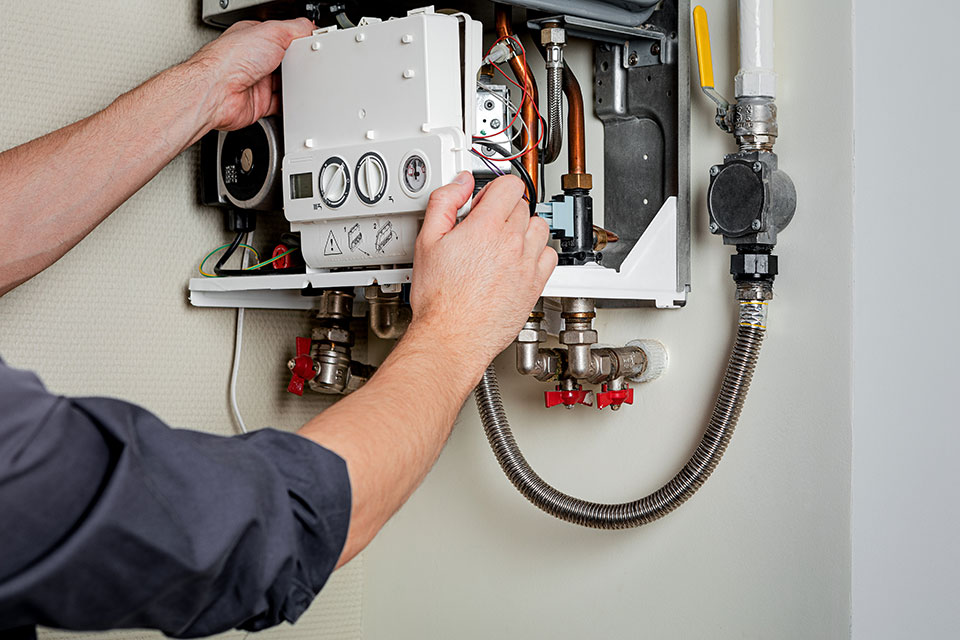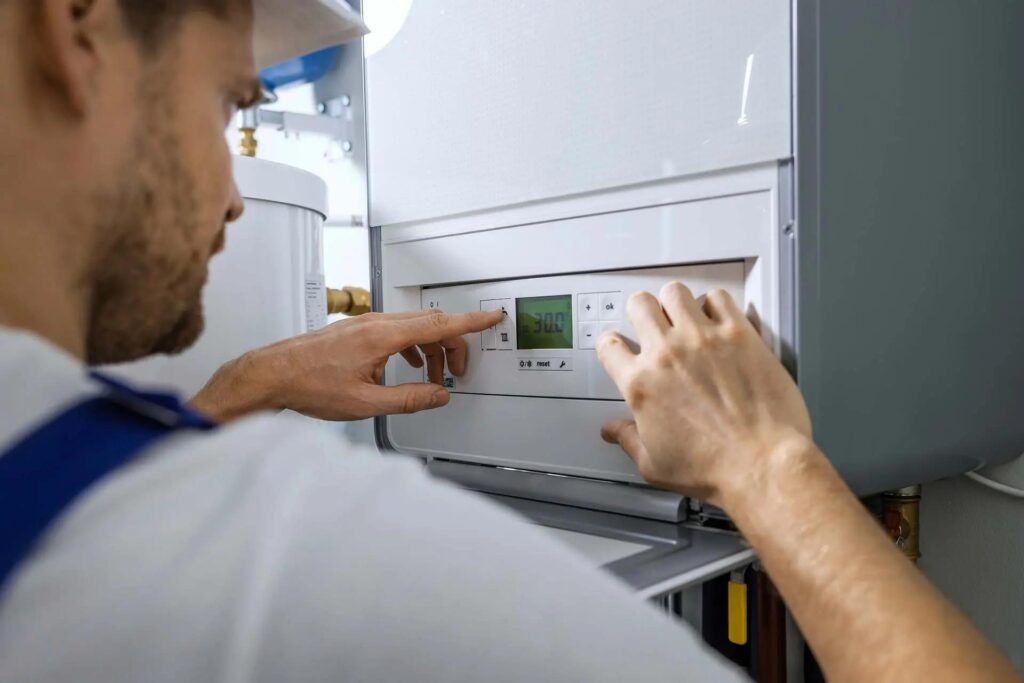Replacing or installing a boiler is one of those projects most Rhode Island homeowners only face once or twice in a lifetime.
You know it is important, but you might be wondering how long you will be without heat or hot water.
This guide breaks it down in simple terms so you know exactly what to expect before the work begins.
How Long Does a Boiler Installation Take?
A standard boiler installation in Rhode Island usually takes 1 to 2 days. Complex jobs such as relocating the system, changing fuel types, or installing a completely new setup can take 3 to 5 days.
Key Takeaways
- Most boiler installations in Rhode Island take 1–2 days for a straightforward replacement.
- More complex projects, like relocations or fuel changes, can stretch to 3–5 days.
- Permits, inspections, and Rhode Island’s seasonal weather may add extra time.
- Preparing your home and scheduling with a licensed contractor speeds things up.
- Always allow buffer time so you are not left without heat or hot water unexpectedly.
What Is a Boiler Installation?

A boiler installation means more than just swapping a metal box. It includes removing the old unit, preparing the space, connecting gas, water, and venting lines, and making sure the system runs safely.
If you’re upgrading from a different type of heating system—such as moving from forced air to a hydronic boiler—the project also involves installing new piping and radiators. Homeowners familiar with tasks like learning how to reset furnace during system changes will find that switching to a boiler requires a similar level of attention to new components and setup.
Factors That Influence Boiler Installation Time
Several details determine how long your project takes:
- Boiler type: Combi boilers tend to install faster than conventional or system boilers.
- Replacement vs. new install: A like-for-like swap is quicker than converting from oil to gas or adding a full heating network.
- Location: Moving the boiler to another part of your home requires extra plumbing and venting work.
- Infrastructure: Old piping, outdated wiring, or poor ventilation may need upgrades before installation.
- Permits and inspections: Rhode Island building codes require licensed professionals and often municipal inspections.
- Season and schedule: Harsh winters or limited contractor availability can push timelines longer.
Tip: Ask your installer about potential obstacles during the initial survey. This prevents surprises once the work begins.
Typical Timeframes for Different Types of Installations
- Like-for-like replacement, same location: 4–6 hours to 1 day.
- Replacement with relocation: 1–2 days.
- Fuel change (oil to gas, gas to propane, etc.): 2–3 days, depending on gas line or tank installation.
- New full system install: 3–5 days, especially if adding radiators or underfloor heating.
Rhode Island homeowners: Expect an extra day if inspections or utility approvals are required, especially for gas line work.
Rhode Island-Specific Considerations
Living in Rhode Island adds a few unique wrinkles to boiler installations.
First, many homes are older, with outdated pipes and radiators that may need upgrades. This adds hours or even days to the job.
Second, the climate means most people replace boilers during the warmer months to avoid being without heat. Scheduling in late spring or early fall can shorten wait times.
Finally, local permits and inspections can add a day or two, depending on your town’s building department workload. If you’re ready to make the switch, talk to Acorn Oil Co for professional advice and installation.
Step-by-Step: What Happens During a Typical Boiler Installation

- Assessment and sizing: The installer confirms the right boiler size for your home’s heating needs.
- Old system removal: The old boiler is drained, disconnected, and safely removed.
- Site preparation: Plumbing, venting, gas, and electrical connections are prepared or upgraded.
- Installation of new boiler: The unit is set in place and connected.
- Testing and inspection: The system is filled, pressurized, and tested. Municipal inspections may follow.
- Handover: The installer shows you how to use your new system and provides maintenance tips.
Each step takes time, but careful preparation ensures your boiler runs safely and efficiently for years.
Cost & Disruption: What Homeowners Should Expect
Installation means some disruption. Expect noise, workers in and out of your home, and limited hot water during the process.
You may need space heaters if work stretches into colder weather. Costs rise if extra days of labor are required for complex jobs.
To minimize disruption, clear access to the installation area and confirm all decisions with your installer before work begins.
Frequently Asked Questions
1. How long will I be without heat or hot water?
Usually one to two days, longer if the project involves relocation or a new system.
2. Do I need permits for a boiler installation in Rhode Island?
Yes. Licensed installers typically handle permit applications and scheduling inspections.
3. Can I speed up the process?
Yes. Clear the work area, choose your boiler model in advance, and schedule during off-peak seasons.
4. What can double the installation time?
Fuel changes, major plumbing upgrades, or relocation of the boiler often add multiple days.
5. Is a like-for-like swap always faster?
Yes. If the new boiler is the same type and size in the same location, it is the quickest option.
6. Do different types of boilers take longer to install?
Yes. Conventional systems often take longer than combi units because of extra piping and tank work.
Conclusion
Boiler installations in Rhode Island usually take one to two days, but complex projects can stretch to five.
Plan, schedule wisely, and work with licensed professionals who know local codes. That way, you’ll minimize downtime and enjoy reliable heating for years.
If you’re ready to make the switch, talk to Acorn Oil Co for professional advice and installation.